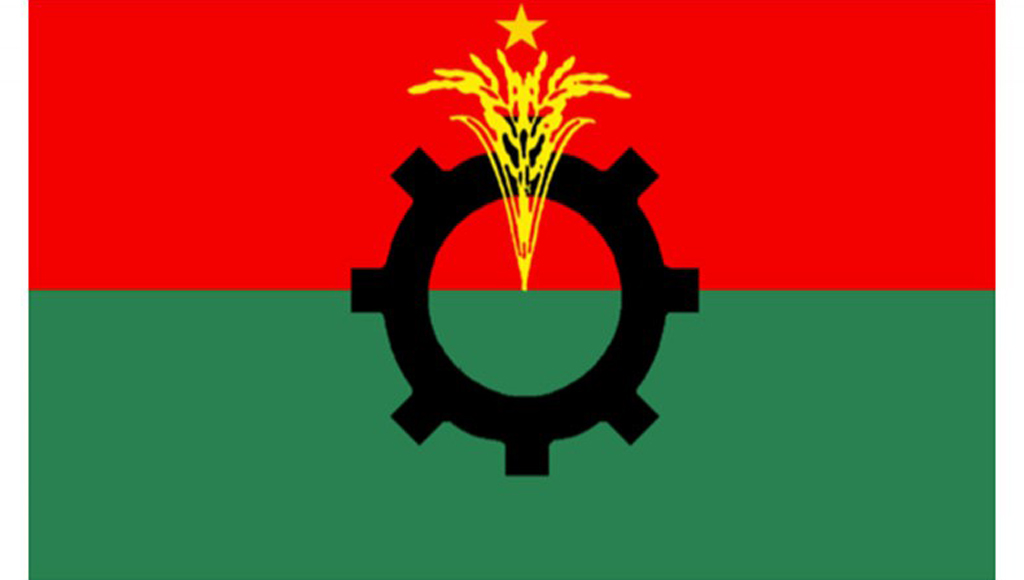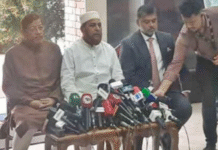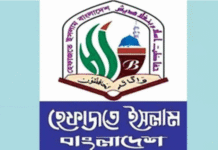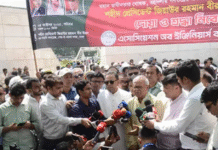
The main opposition Bangladesh Nationalist Party could not implement its ‘one leader, one post’ policy for eight years.
In the last council session held in March 2016, the party added a provision to its constitution saying that no person would be allowed to hold two positions at a time at any level.
A policy decision to implement this provision was also taken in a meeting of the standing committee, the highest policymaking forum of the party, to create new leadership, after the council session.
Against this backdrop, the party was facing growing discontent from its leaders and activists, especially after the role of many leaders holding multiple positions in the anti-government movement ahead of the January 7 general election got exposed.
BNP standing committee member Amir Khasru Mahmud Chowdhury told New Age that the party was now working to implement the provision after going slow in the past few years due to its ceaseless anti-government movement.
‘We indeed need to concentrate on organisational discipline, but everyone knows how BNP has passed in the past 15 years. We have been busy in movement and resisting the conspiracy of the Awami League,’ he said.
He said that before the past two general elections, the BNP faced an existential crisis as the ruling Awami League used all state organs to destroy the party.
Another BNP standing committee member, Iqbal Hasan Mahmud Tuku, claimed many leaders had already given up their multiple posts.
‘Many have already left a post. The rest will also leave; it is happening,’ he said, adding that they might accelerate the process in the coming days.
Seeking anonymity, another member of the party standing committee said that acting BNP chairman Tarique Rahman wants to put qualified people in the appropriate positions in the party.
Noting that the number of leaders in the BNP is high as a big party, he insisted on implementing the policy at the earliest possible time.
‘If a leader holds more than one position, it blocks the path for qualified people to take the appropriate position,’ he said.
‘And if a qualified activist sacrifices for the party but does not get any position to introduce himself, the individual can feel deprived or unwanted by the party,’ added the BNP leader.
After the 2018 national elections, the BNP acting chairman also took the initiative to implement the ‘one leader, one post’ policy, but the initiative could never gain momentum.
Several central and district-level BNP leaders said that most of the leaders holding several posts had no role in the field during the two-and-a-half-month movement before the 12th parliamentary elections.
Expressing their anger, they said that some central leaders of the BNP were holding up to four important positions at various levels, including in professional bodies, the media cell, and other front bodies.
‘But there are many qualified and tested leaders in BNP who are without posts,’ a former Jatiyatabadi Chhatra Dal vice-president told New Age.
By keeping one leader in one position, they can give the remaining positions to others, he said, adding that if a leader is given one position, he can do the job well.
‘If a leader is given two or three positions, he cannot perform well at any level,’ he added.
According to 15(b) of the BNP constitution, no member of the party’s standing committee or chairperson’s advisory council, no leader of the national executive committee, and no president or general secretary of any leader associate organisation can be elected as a leader in any other level committee of the party.
‘However, due to unavoidable reasons, the chairman of the party can temporarily approve the exception,’ the provision said.
According to the BNP central office, its central joint general secretary, Khairul Kabir Khokon, is the convenor of the Narsingdi district unit of the party, publicity secretary Shahid Uddin Chowdhury Anee is the convenor of Lakshmipur district unit of BNP, organising secretary Asadul Habib Dulu is the president of Lalmonirhat district unit; and joint organising secretary of Mymensingh division Wares Ali Mamun is also the general secretary of Jamalpur district unit.
At least eight other members of the BNP chairperson’s advisory council, including Aman Ullah Aman and Abdus Salam, hold the two positions together. Aman is the convener of the BNP Dhaka North City unit, and Salam is the convener of the BNP Dhaka South City unit.
Manikganj district president Afroza Khanam, Munshiganj district convener Abdul Hai, Pabna district convener Habibur Rahman, Chittagong North district convener Golam Akbar Khandkar, Kushtia district president Syed Mehdi Ahmed Rumi, and Krishak Dal central senior vice-president Helaluzzaman Talukdar Lalu are also on the advisory council of the chairperson.
Apart from this, Khagrachari district president Abdul Wadud Bhuiyan, Bandarban president Ma Mya Ching, Chandpur president Sheikh Fariduddin, Cumilla south district convener Aminur Rashid Yasin, Munshiganj district member secretary Kamruzzaman Ratan, Kushtia district general secretary Sohrab Uddin, and Panchgarh district member secretary Farhad Hossain Azad are also in various secretarial positions of the BNP central committee.
Abul Khair Bhuiyan, who is an advisor to the party chairperson and holds the party’s social welfare affairs secretary post, told New Age that many leaders were holding several posts at a time as the party did not get the scope to settle the matter in previous years due to continued repression by the government.
‘We focused on the street protest at this time; we did not get a proper time to look after our organisational issues. We hope everything will be solved as our acting chairman and other leaders are working on it,’ he added.
According to party insiders, there are at least two dozen members of the members of the executive committee who hold top positions in districts or other units of the party.
New Age









